Madeon: “FL Studio is objectively the most advanced DAW”
The French production wunderkind on the making of his new album and vertiginous rise to electronic music fame
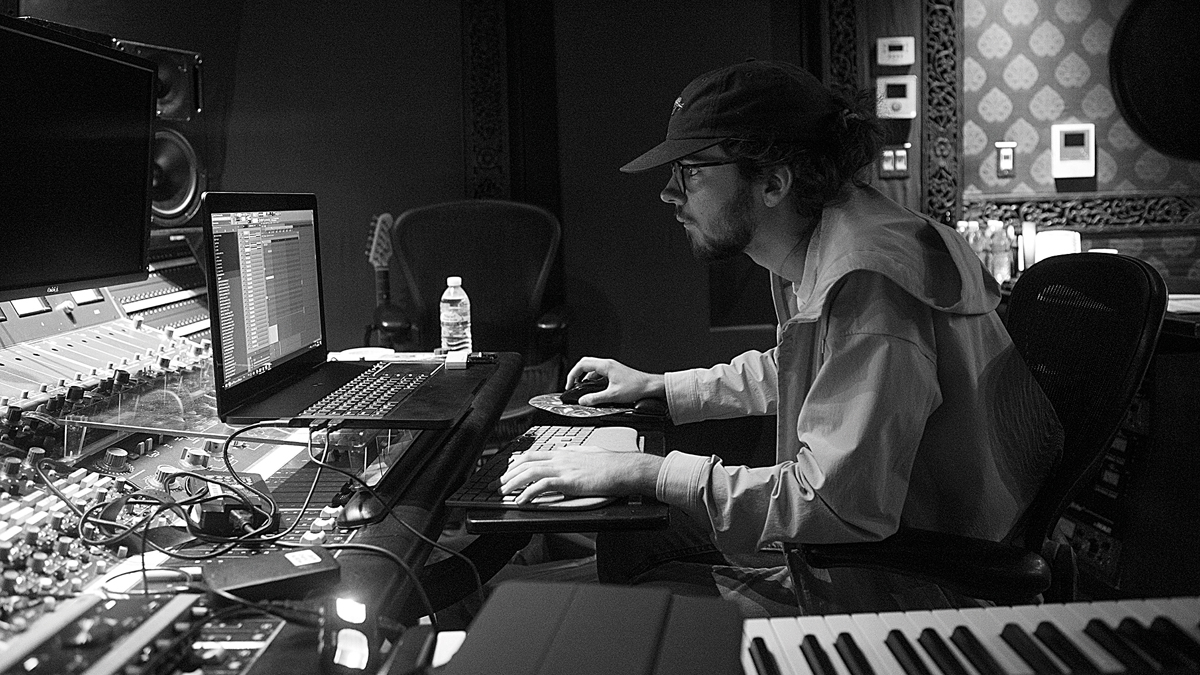
Born in the French city of Nantes, music geek Hugo Leclercq’s passion for imitation guided him into the world of music production.
Aged 16, he purchased an original Novation Launchpad and within hours had created Pop Culture - a three-minute, 39-song mashup that’s swelled to fifty million views on YouTube since its release in 2011. The video thrust Leclercq - now known as Madeon - into the spotlight, with his debut EP The City arriving in 2012.
Influenced by French house and electropop, Leclercq spent the next three years recording his debut album Adventure in the basement of his parents’ house, kickstarting a production career that would eventually see him work alongside the likes of Ellie Goulding, Coldplay and Lady Gaga.
Propelled onto the festival circuit, Leclercq swiftly moved to Los Angeles to build a home studio and begin working on his sophomore album, Good Faith, adding vocals to his ever-increasing range of talents.
Take us back to the Pop Culture YouTube mashup you made using the Novation Launchpad. What impact did the success of that video have on you?
“It changed my life, which was my hope. I recorded it at 16, the day I got the Novation Launchpad, shot it on my iPhone and waited for the right time to release it. I went on vacation with my parents but had no internet to check the reaction, so I went to a web café and saw it had millions of views already.
“Suddenly there was a whirlwind and I knew my life was never going to be the same. I was relieved that people connected with the idea and that I’d found my preferred format in which to perform.”
Want all the hottest music and gear news, reviews, deals, features and more, direct to your inbox? Sign up here.
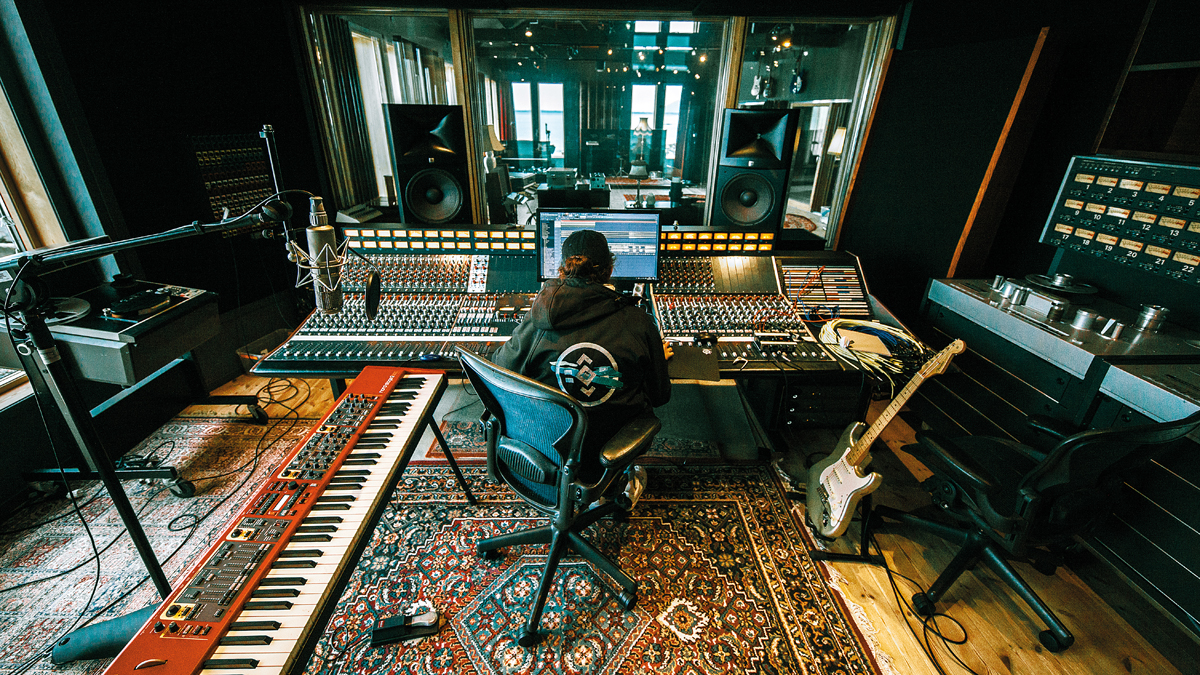
You looked pretty skilled at using the Launchpad. Had you already experienced using similar production tools?
“No, but a lot of my hobbies involved my hands. I did a lot of magic and puzzles so I had a movement style that was informed by that. My memory’s hazy but I’d tested the concept based on an Akai MPC-style layout just to make sure, although Pop Culture was not a difficult piece to perform. I tried to make it more visual by accentuating my hand movements but it was actually quite trivial to rehearse and manage. I was more interested in the idea of being able to improvise and show there was a clear connection between my brain and the music you heard through using this tool.”
Did you want to make music prior to discovering gear or was it the gear that inspired you to make music?
“When I was 11 there was a Daft Punk documentary on TV. Within 40 minutes I’d heard snippets from all of their famous songs and the sounds they used struck me as being inexplicable. I had a good sense of how rock music was made because I could see a guitar, but I didn’t feel the same way about synthesizers and vocoders because it all seemed so foreign and magical.”
How did that influence you in practical terms?
“When people mentioned the word synthesizer I didn’t even understand what it meant, so I tried to make sense of it by using software to unlock that puzzle. With Daft Punk it was almost a case of reverse engineering. At first I thought their sounds were all based on voices with effects on them, so I started singing into a karaoke microphone, loading it into Audacity and adding every effect until I sounded like Daft Punk. It didn’t work, but I immediately got attracted to the idea of audio manipulation and sound design.”
When most consumers listen to electronic music they don’t necessarily think about where the sounds come from, so what birthed your sense of inquisitiveness?
“A theme of my childhood was imitation and creation. Whenever a piece of art moved me, I wanted to create my own version. If I read a book I’d try to write a book or if I played a video game I would try to programme one on my dad’s computer. I just wanted to create and have a sense of ownership over whatever I made, and music was just another one of my hobbies.”
Within a year of Pop Culture you’d released your first EP. Was the sound based on the same artists that inspired you to make that mashup?
“The sound of the music I was making was informed by the music I loved but also by a certain production discipline. I’d already met Porter Robinson - we were friends and used to talk on instant chat. We had this rivalry where we’d chase styles of music that were explicitly complex to make by chopping up and layering sounds.
“At that time I wasn’t aware of club culture and had never been to a live show or seen a DJ, so I could only analyse dance music as a technical achievement. However, my taste was so pop-oriented that I couldn’t help but make lots of melodies, chords and arrangements, which became a theme for the music I was making.”
Some people might be surprised to learn that The Beatles are also an influence of yours?
“On the new album, there’s a song that’s basically a Beatles song in spirit, but I think the link is very clear in all of my work. It’s truer on my new record because there are psychedelic influences, brass sounds and Rickenbacker bass, but my influences are not always sonic - they can be a commitment to a palette of sounds, a vibe or just the idea of trying to reinvent myself.”
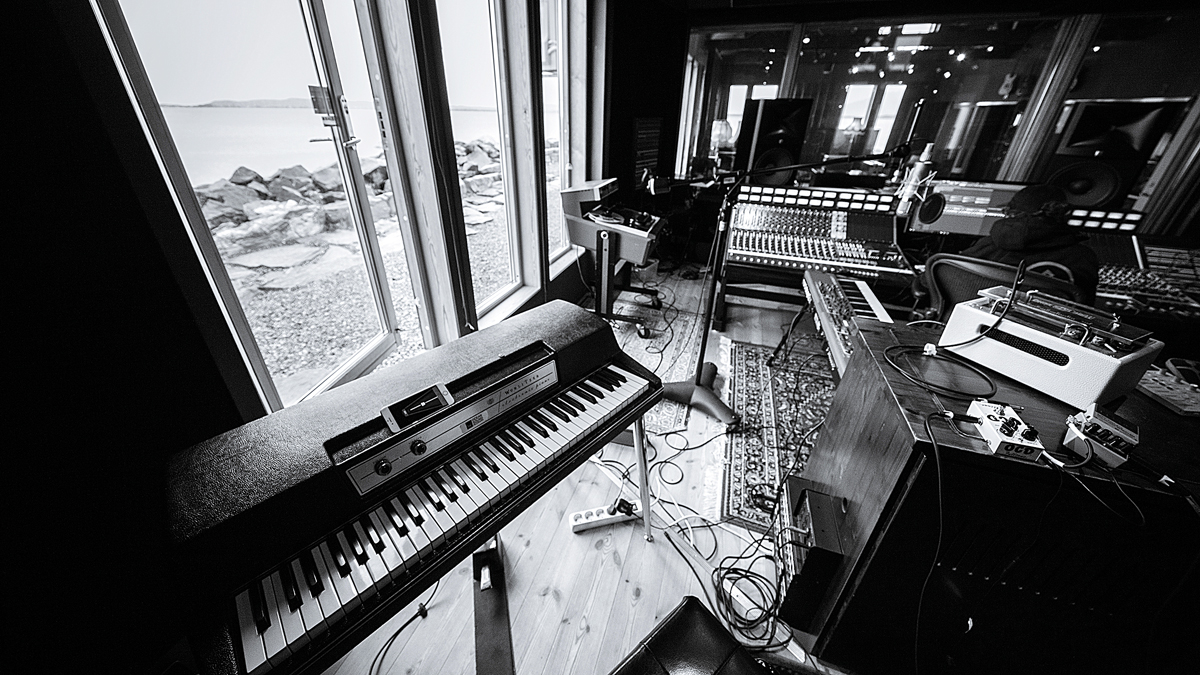
Considering your debut album Adventure was recorded when you were just 21, it had a very mature sound. Were the co-writers and session players you worked with arranged via the label?
“I was signed to Columbia in 2012 but they gave me complete creative control. Although I was reaching out for advice, I wanted to keep that original feeling of Madeon being self-made. I loved the idea of making my own DIY fantasy and wanted to preserve that feeling, but also to understand what songwriting was about, so the label set up some sessions. One of the most striking ones was with Jimmy Napes [British songwriter and producer]. He’s a genius, so it was fascinating to see his whole process.”
What did you learn from Jimmy?
“The weight and meaning behind his words and how you could modify and reinvent melodies like they were an equation. I was also struck by how profound the art of songwriting was. I used to think they’re only words, how hard can it be? But it turned out that the whole process was just as intricate as the technical side of production and from that point on I realised music would always stay fulfilling because I’d always be able to entertain my brain technically and my heart creatively.
“Then I did some other co-writes with people who sung their own songs, like Passion Pit and other Columbia artists that I happened to love - I felt like a teenage intern. I’ve spent a lot of time with people like Lady Gaga and other writers and would write down all of their tricks. Even if we didn’t write such a good song that day, I would always have at least one great takeaway from it.”
What did you take away from your songwriting sessions with Lady Gaga?
“Lady Gaga was a mystery because she’s a natural genius. She would write songs by singing the first idea that came into her head and come up with brilliant melodies so effortlessly, which was amazing but inexplicable.
“I guess I learnt to realise that you’re not a machine solving a problem; you’re a human being and if you allow yourself to be vulnerable in your writing you’ll be more sincere.”
Lady Gaga was a mystery because she’s a natural genius. She would write songs by singing the first idea that came into her head and come up with brilliant melodies so effortlessly.
Is that how you approached the new album Good Faith?
“The main starting point was the track Shelter - a song that I made with Porter. It was the first time I’d released a single where I’d written all the lyrics and sung the lead vocal. Vocal-wise, I’d dipped my toe in the water on the first album but this time I was carrying a proper pop single. I was anxious because I did it without the help of traditional writers but it turned out to be my biggest song ever. It then became obvious that I’d want to carry on fulfilling that on further work, so I gained the confidence to write the second album alone to truly identify and define what Madeon is.”
You talk of Madeon in objective terms, as if he’s separate from you?
“I always ask myself, how much do I like being Madeon, how proud am I of it and how cool is it? Every so often I feel like I outgrow a version of Madeon. When I started touring I would only do DJ shows, which was exciting at first but then I realised that playing other people’s hits was not fulfilling - it’s not what Daft Punk would do! It felt like a step rather than a destination, so I tried to reframe Madeon until it felt cool again by doing live shows, writing and putting out albums.”
Has becoming established added a level of pressure or expectation and is that something you fear or embrace?
“My definition of success is very clear. I want to be excited about being Madeon, which is all to do with how sincere it is.
“The other thing is that I want to be an artist worthy of being a fan of. I want to provide substance, content and context so my music’s not just consumed passively but fosters a community of super fans who care about the work. I still get starstruck all the time and want my fans to feel the same way about this project.”
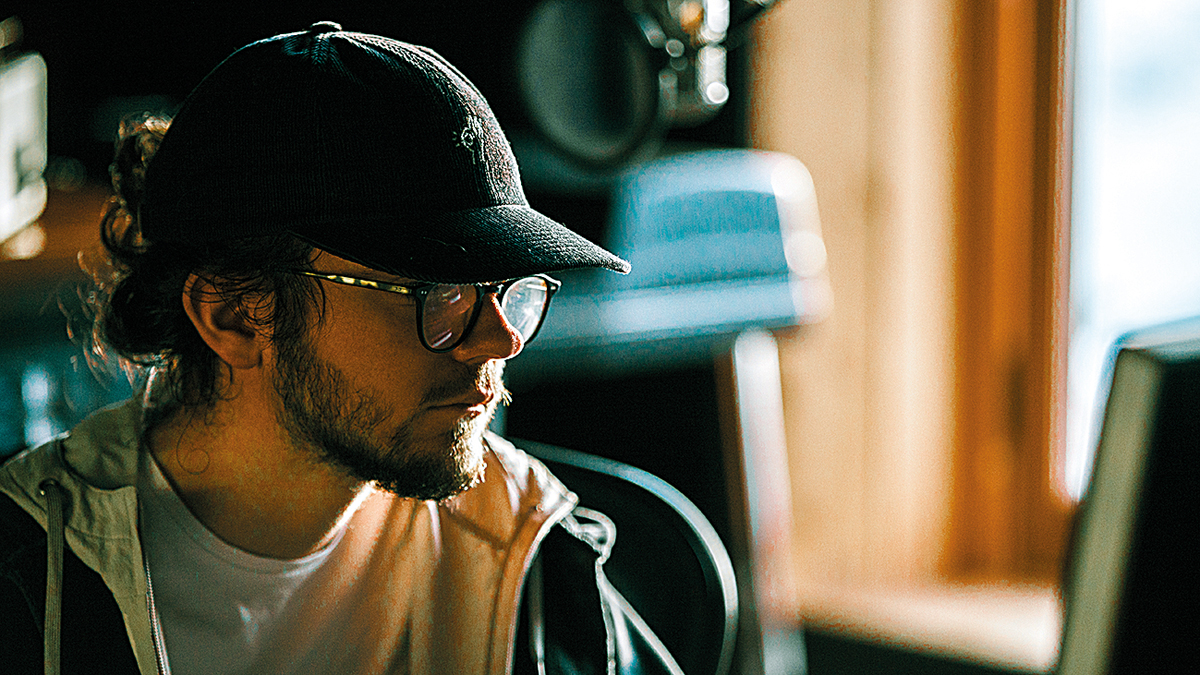
How far does your ambition stretch within the pop music realm?
“This type of pop music, which has a lot of layers, fairly complex production and, hopefully, efficient pop writing, is traditionally made by large teams of people, so I think it would be fun to make music like that alone and role play all those steps. I want to pretend to be a big pop writer, singer, session keyboard player, mix engineer and mastering engineer, and create a pop sound at the end that I love. My secret fantasy is to make a song that’s a true classic, like September by Earth, Wind & Fire or Happy by Pharrell, songs that we all know and love.”
Can you strategise that because many artists say those big hits took them by surprise?
“I don’t think you can force it, but if you’re asking me what my dream is or the end game of this trajectory, it’d be that. Hopefully, along the way some magic happens or I can create music that resonates with the world.
“Personally, I wouldn’t enjoy having a big hit that I didn’t think was that good; pop music is the Premier League of music.”
Personally, I wouldn’t enjoy having a big hit that I didn’t think was that good; pop music is the Premier League of music.
Yet a common perception of pop is that it’s more disposable than, say, classical or jazz…
“I don’t feel that way at all. I view jazz, classical, dance music and hip-hop with great interest and passion and nurture influences from them, but the most important and beautiful music is pop. It’s not trivial. If you think you can make pop music easily, good luck trying to write a hit song.
“I love analysing songs and how they capture me. The ones that truly move me tend to have a few characteristics I can’t grasp. The creative process is like digging for treasure.”
Because your music’s no longer the vocal expression of others, how has that changed your sound?
“It comes back to the idea of being happy being Madeon and defining my identity. With this next body of work, it’s been crucial to embody Madeon, but I’m still happy to welcome other artists into my world and allow the new Madeon to meet them.”
We gather the album was recorded in LA rather than your hometown of Nantes. Why go there?
“I actually live in Los Angeles now because I did a show in LA with some colleagues of mine and just liked it. At first, I went there to do a couple of recording sessions and try things out and then I decided to live there, build my studio, enjoy the vibe and live a new life.
“In terms of the studio, I wanted to recreate what I knew from working in my parents’ house, so I aimed for natural lighting with a view to look at and everything to be within easy reach.”
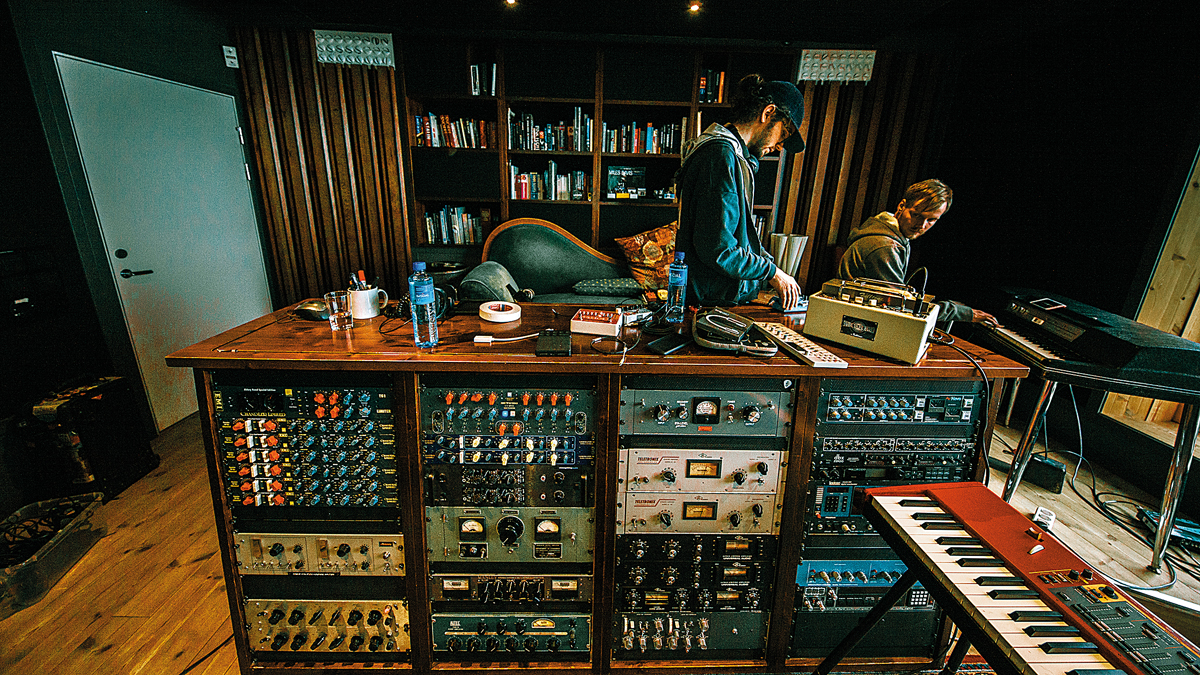
A lot of your music was born from the software realm; is your current studio more expansive?
“When I was younger I had a lot of doubts about the analogue culture. I thought that ground had been covered and I should be championing software and moving things forward, so I had that workflow for a while but soon realised my musical taste lends itself to more traditional recording methods.”
What made you come to that realisation?
“When I made the album I travelled to many scenic places to find inspiration and used whatever gear the studios had in them. When I was in Norway, one studio had a piano and I felt that I played better and differently to how I do on a MIDI keyboard using a Kontakt library, so maybe there are similar objects that can bring that magic into my process.
“I was definitely becoming more sensitive to the sound of analogue synths and now I’m trying to find the right balance between being software-based and adding hardware that will inspire me. I’m sure I could match the sound in the software world, but the workflow is very different so I don’t think I’d have come up with the same ideas.”
What synths did you get?
“I got a Roland Juno-106 because I’d used emulations of that and thought it would be more fun tweaking the real thing. I was just about to import one from Japan, but I found that one of the best guys in the world at refurbishing these things lives down the street from me, so I picked one up, brought it home and now I love it.
“I also got a Moog Model D and started a secret collection of gear that I know from inside sources were used on some of my favourite albums. These are almost like museum pieces so I’m not trying to copy or emulate those artists; it’s just cool to put myself back in their shoes so I can maybe stumble on some of their ideas. Sometimes I’ll do covers just for fun, to please the child in me who wants to understand, for example, how Daft Punk made stuff.”
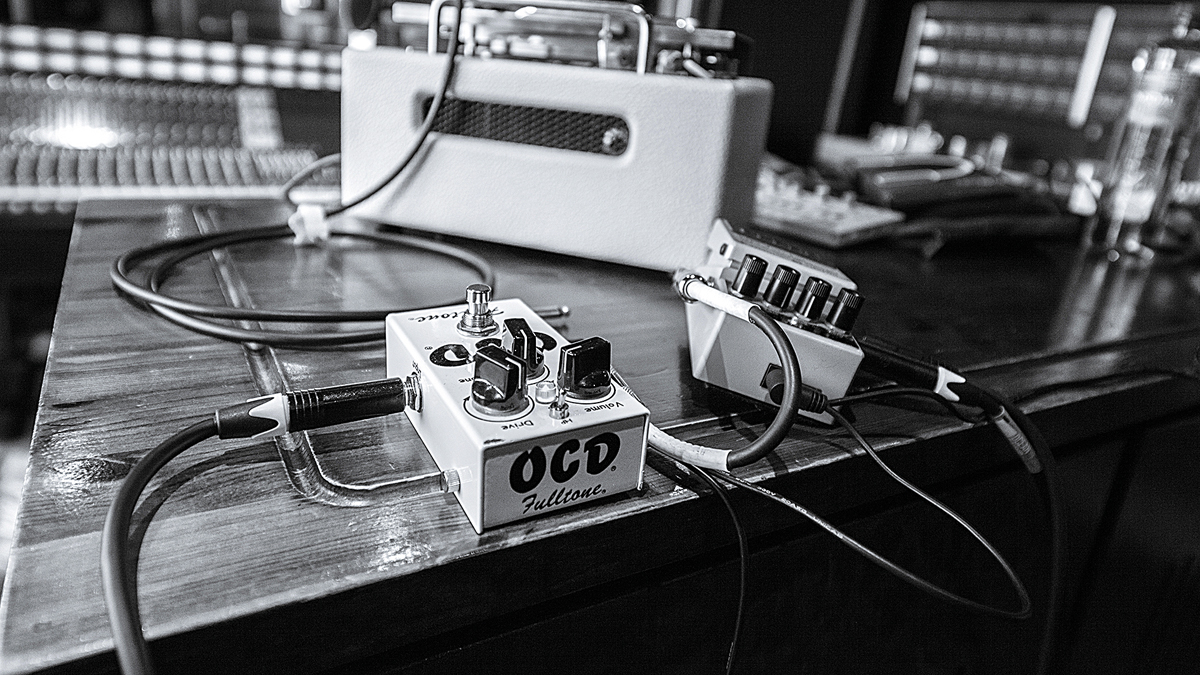
What gear in particular are we talking about?
“I won’t say what gear I got because it’s inside info. It would almost be dangerous to reveal those secrets and I don’t want people to start using certain presets as it might cheapen those sounds, but I’ll give some hints.
“For example, Daft Punk used a DigiTech synth wah pedal throughout their third album Human After All. Through their genius, creativity and intuition they made an entire album using that pedal and it’s a cheap $50 pedal that nobody gave the time of day at the time. For me that was such a cool lesson. Your best tool is your ability to recognise greatness when it’s in front of your eyes, not when the world tells you something is great. If there’s a terrible bit of kit that everybody hates but you find something cool about, please, please go twist that underappreciated, poorly reviewed synth into a classic, because that’s what we need.”
Would you compare that to the Roland drum machines, which were not used as intended but now have a historic status?
“Of course, the 808 was not made to create these booming, long decaying kicks, but this also applies to the software realm. Using a plugin that everybody hates and finding some cool trick that nobody recognises is more precious than using some expensive gear that someone might have. Sometimes I’ll close my eyes and A/B between hardware and software and pick whatever sounds best, whether it costs $10 or $10,000. It’s true that I have to do more processing to get bass sounds to fit the way that I want them, but that’s just my production style.”
We hear you’re a fan of FL studio in preference to some of the other DAWs?
“I’m proficient at most DAWs but I think FL Studio is objectively the most advanced. It’s underrated and has features that are unmatched. When I use Ableton I sometimes have to call friends and ask them how to do something I’d normally do in FL, but most of them say Ableton can’t do it. I’m clearly a fanboy, but I don’t think anybody should change their DAW if they’re comfortable using it to get their ideas out there.
“I’m also lucky to be relatively tight with FL’s development team, so if I have a problem I can call a programmer and get bugs fixed that day. I don’t think that’s happening with Pro Tools [laughs]. It’s like an extension of my brain and I’ve been using it for several hours every day since I was 10.”
What elements of FL do you feel are superior to its competitors?
“One thing I love is that you can do crazy parallel chaining where every plugin is in parallel and you can do insane routing. I also like the freeform playlist where the MIDI, audio and automation can be stacked on top of each other or organised in weird ways. That really informed my early production style as my music would alternate between MIDI and audio three times in the same bar because FL’s interface allowed it to look neat and natural. Basically, the software didn’t tell me that was forbidden.
“It also has a built-in audio editor that works as a plugin that you can load anywhere in the chain; I’ll use that to resample things.”
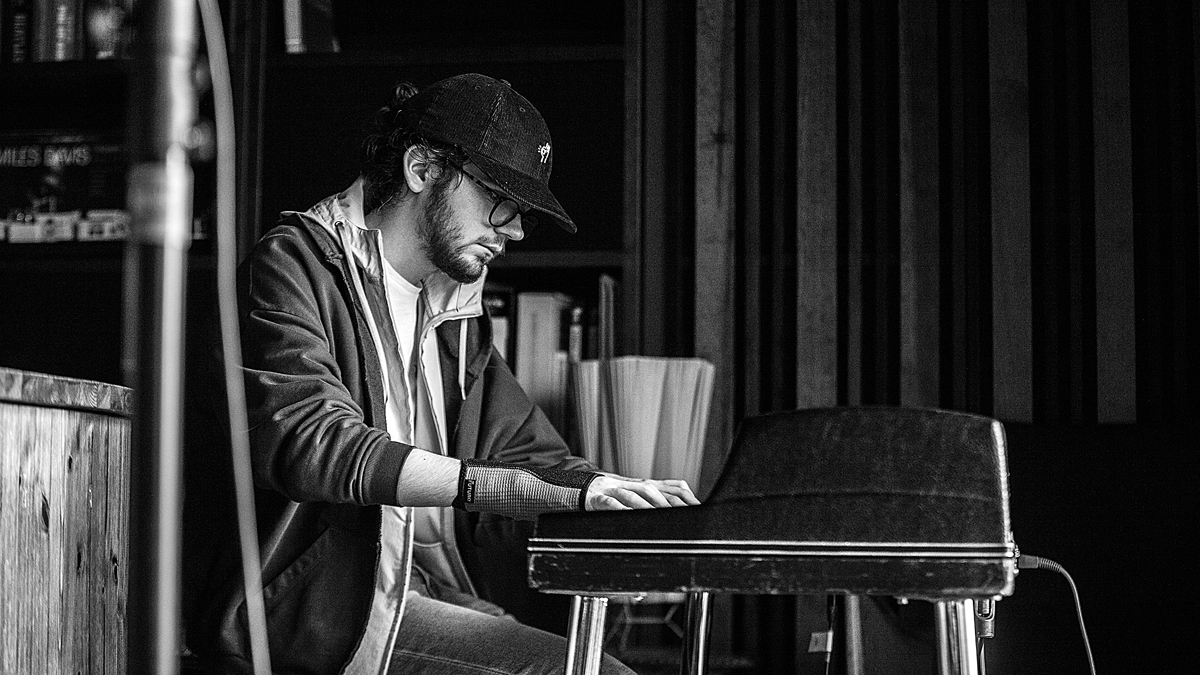
You use really big sounds to bring across an epic style. Are you focused on layering sounds or just putting a lot of effects on them?
“I don’t think in terms of method but how I occupy space. Sometimes the sound source doesn’t need processing, I just think about the end result and the means to achieve that becomes quite obvious.
“Before every album I spend time creating a palette, so I’ll design new drums and sounds, record drums and piano or hire guitarists to play random loops from no particular song so I have my own sample library. I’m careful to render audio for anything I make, even if it’s bad, so I can sample myself. ”
So you have a vault of Madeon sounds?
“Yes, because sometimes I’ll vaguely remember a track I made one morning three years ago and think that’s the snare I need for a new one. In that respect, all of my songs are hybrids of dozens of failed projects. It’s like I’m harvesting organs from songs, whether it’s a chord progression, a hook, drum sound, lyrical concept or mastering chain. That way the albums can relate to each other because everything has a common goal through recurrent sounds and collaboration between songs. It’s like there’s a 2017 version of me and 2019 version of me and I get to meet that person from the past.”
All of my songs are hybrids of dozens of failed projects.
Do you bring in others when it comes to mixing and mastering, if only for a different viewpoint?
“I’ve always mixed and mastered everything myself. I did try to get other people involved a few times but wasn’t happy, as I felt it was as much effort communicating what I wanted as doing it myself. Having other people mix your music is amazing if you’re a songwriter who’s not that technically proficient or unsure about how to achieve what you hear in your head, but if you already have that knowledge then I think a mastering engineer is unlikely to make something strikingly better.”
The new Madeon album Good Faith is out now. For more information, visit the Madeon Facebook page.


Future Music is the number one magazine for today's producers. Packed with technique and technology we'll help you make great new music. All-access artist interviews, in-depth gear reviews, essential production tutorials and much more. Every marvellous monthly edition features reliable reviews of the latest and greatest hardware and software technology and techniques, unparalleled advice, in-depth interviews, sensational free samples and so much more to improve the experience and outcome of your music-making.
